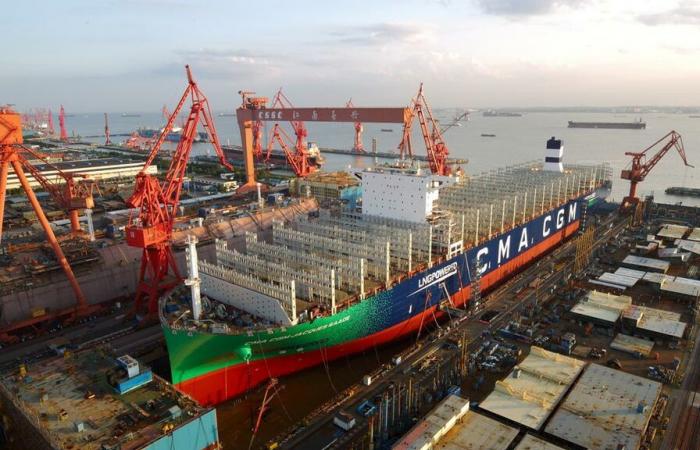Natural gas has a bright future ahead of it. In 2024, the world consumed 115 billion m3 more than in 2023, a historic record. This increase of 2.8% is higher than the average growth rate for the years 2010 to 2020, around 2%, underlined the International Energy Agency (IEA), in a report published Tuesday January 21, 2025.
Gas is the fuel that has met 40% of the increase in energy demand. “The Asia-Pacific region represents almost 45% of additional gas demand in 2024, thanks to its continued economic expansion,” specifies the IEA. It is also this region which will continue to drive global consumption upwards in 2025.
The highly coveted LNG
“At the same time, the global gas balance remains fragile, with supply remaining tight and geopolitical tensions continuing to fuel price volatility,” the report points out. The cessation of Russian gas transit via Ukraine on January 1, 2025 “should not constitute an imminent risk for the security of supply to the European Union,” reassures the IEA.
The OECD agency still expects an increase in demand for liquefied natural gas (LNG), which is transported by LNG ships and not by land pipeline. LNG is used in Europe as in Asia to compensate for the lack of Russian gas since the start of the war in Ukraine in 2022. European LNG imports, however, fell by 18% in 2024.
-A backup role in the event of an extreme weather event
Climate change is also having increasingly visible consequences on gas demand. “Gas-based generation plays an increasingly important backup role in ensuring the security of electricity supply” when renewable energy production is low, the report explains.
The IEA cites, for example, droughts in Colombia and Brazil, which limited the use of hydroelectric energy, or a winter storm in the United States leading to a peak in heating needs in the residential and commercial sectors.






